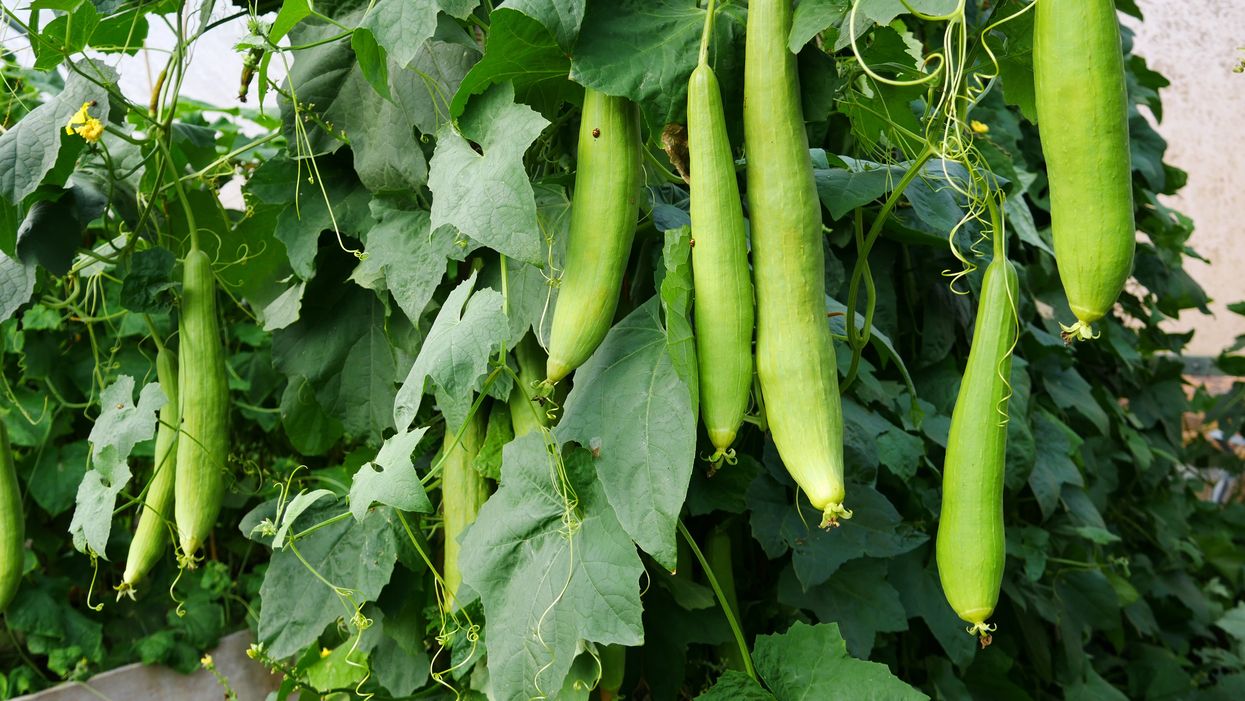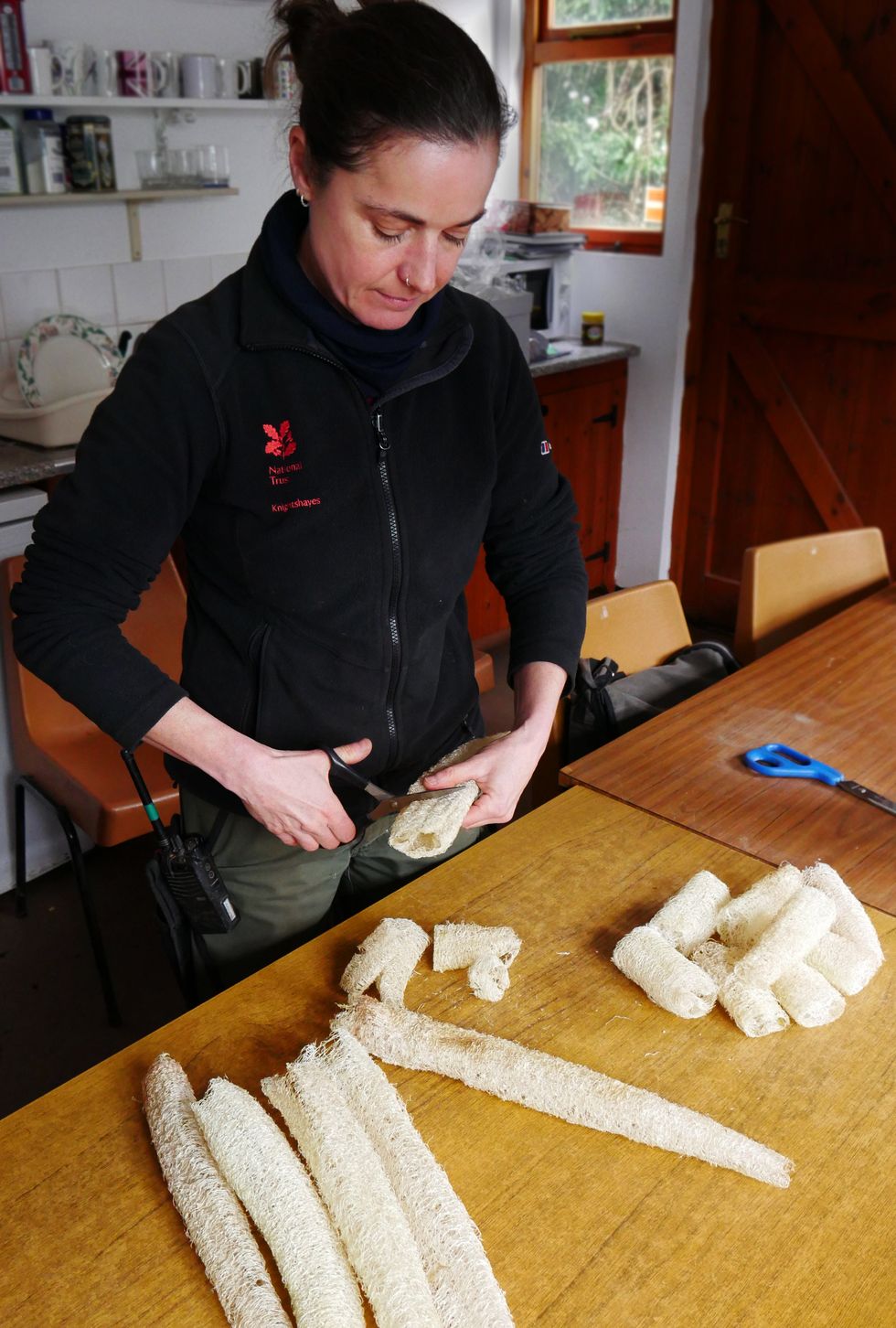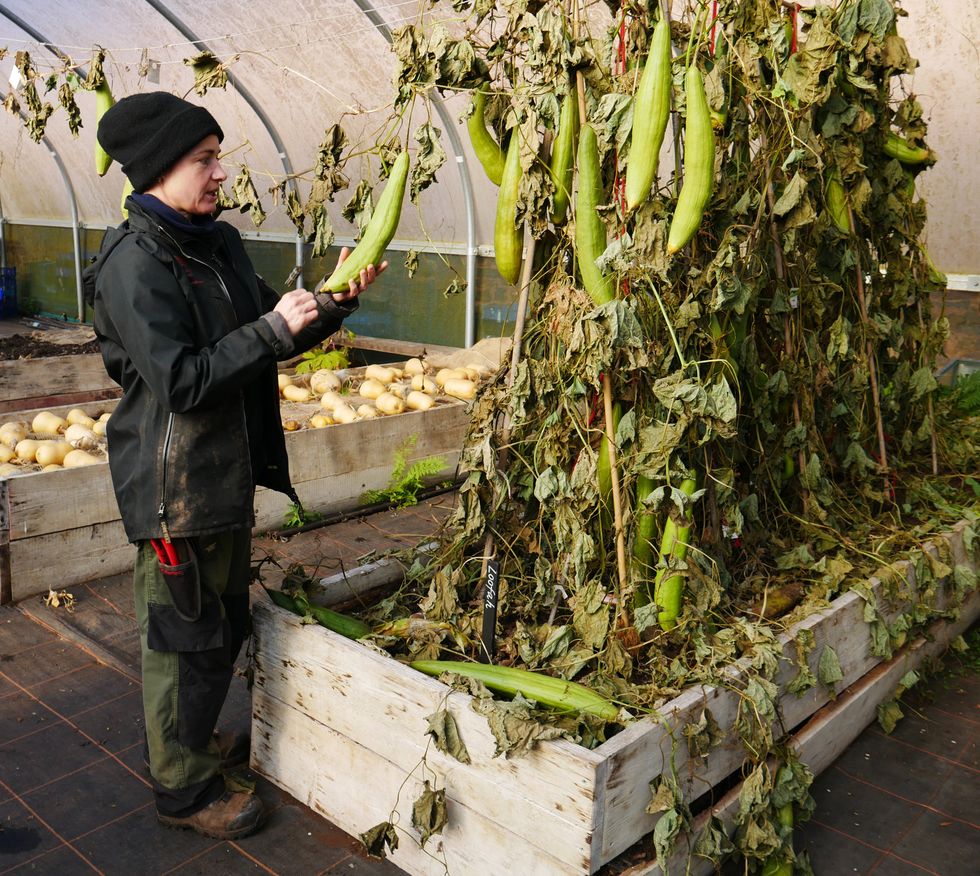
They are best known as back scrubbers but an unusual plant is tipped to be one of the must-haves to grow this year.
Loofahs, which are part of the cucumber family, are native to south and south-east Asia and grow best in greenhouses.
As well as being eaten, they can be used as a sustainable alternative to plastic washing-up sponges.
The National Trust is encouraging people to grow their own loofahs as they are as easy to cultivate as courgettes.
Two years ago, staff at the Knightshayes Court country house in Devon grew their first crop of the vegetable and began using them to wash dishes as an alternative to disposable, plastic-based sponges.
Senior gardener Bev Todd said: “The interest in the loofahs was extraordinary.
“A lot of people bought their own seeds and were excited to try growing loofahs themselves in 2020.
“We really wanted to help people succeed by sharing our top tips but, with most of the garden team furloughed last year, that wasn’t to be.
“This year, we’ll be planting loofahs again in the Victorian kitchen garden and we’re hoping to grow them bigger and better by using a warmer part of the nursery.
“We’re keen to help people grow along with us, so they can do their bit to reduce plastic waste and have some fun in the process.
“We have a lovely big Victorian kitchen garden but don’t be put off.
“You’ll need a supporting structure for the loofahs to clamber up but there’s nothing more complicated than that involved. They’re as easy to grow as courgettes.”














